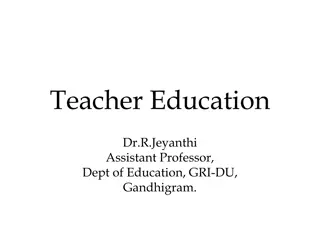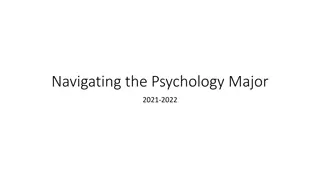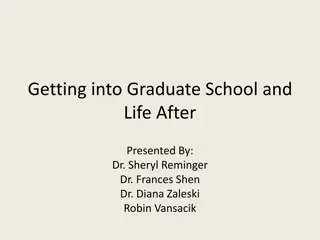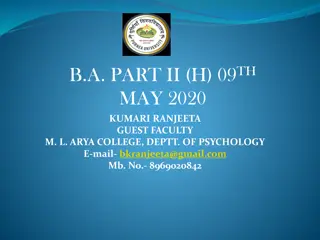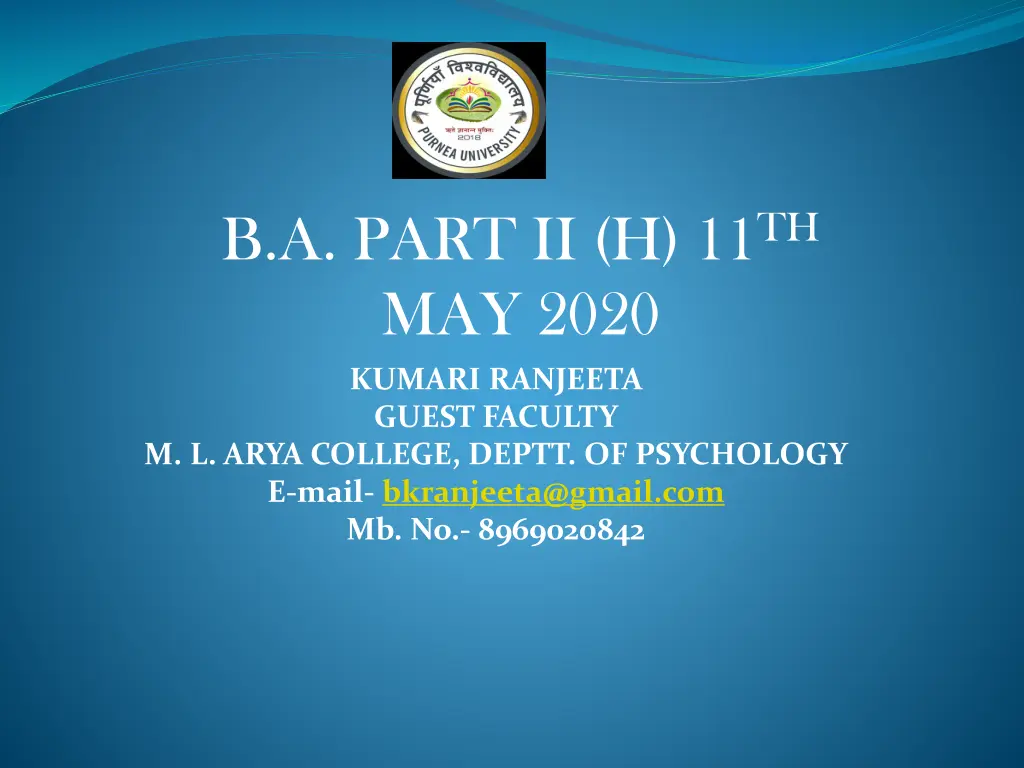
Evolution of Community Psychology: From Past to Present
Explore the historical background and key developments in community psychology from the third decade (1985-1995) to the present, including the emergence of programs like Housing First, international conferences, and the formation of key associations. Learn about the growth of the field and its impact on social welfare.
Download Presentation

Please find below an Image/Link to download the presentation.
The content on the website is provided AS IS for your information and personal use only. It may not be sold, licensed, or shared on other websites without obtaining consent from the author. If you encounter any issues during the download, it is possible that the publisher has removed the file from their server.
You are allowed to download the files provided on this website for personal or commercial use, subject to the condition that they are used lawfully. All files are the property of their respective owners.
The content on the website is provided AS IS for your information and personal use only. It may not be sold, licensed, or shared on other websites without obtaining consent from the author.
E N D
Presentation Transcript
B.A. PART II (H) 11TH MAY 2020 KUMARI RANJEETA GUEST FACULTY M. L. ARYA COLLEGE, DEPTT. OF PSYCHOLOGY E-mail- bkranjeeta@gmail.com Mb. No.- 8969020842
11 MAY 2020 B.A. PART II (H) PAPER III,UNIT III (COMMUNITY PSYCHOLOGY) HISTORICAL BACKGROUND OF COMMUNITY PSYCHOLOGY THE THIRD DECADE: 1985-1995 In 1987, James Kelly edited a special issue of the American Journal of Community Psychology to commemorate the field which had just turned 20 years old (Kelly, 1987). Some of the 12 articles in the issue were brief reminiscences, while others were more substantive. Beth Shinn, for example, urged community psychologists to enter an even wider range of domains, including schools, work sites, religious organizations, voluntary associations, and government.
11 MAY 2020 B.A. PART II (H) PAPER III,UNIT III (COMMUNITY PSYCHOLOGY) THE FOURTH DECADE: 1995-2005 Starting in 1995, Sam Tsemberis (1999), a community psychologist from New York City, developed a program that has come to be called Housing First. The program, described in Chapter 1 (Jason et al., 2019), targets persons who are both homeless and seriously mentally ill. The intervention is a reaction to poorly researched transitional housing models that have rapidly become common in the US. Housing First combines up-front permanent housing with ongoing support services. In a few randomized trials, Housing First clients have become stably housed significantly quicker, and remained housed for significantly longer, than those in the control groups. Positive results have also recently been obtained in an evaluation of Housing First across five Canadian cities (Aubry et al., 2016).
11 MAY 2020 B.A. PART II (H) PAPER III,UNIT III (COMMUNITY PSYCHOLOGY) Housing First has also become very popular in Europe and in other developed nations. For the past three years, there has been an annual international conference to continue this work (Tsemberis, 2018). In 2004, SCRA, the main professional organization promoting Community Psychology in North America, gained solid financial security, perhaps for the first time in its history, by acquiring the American Journal of Community Psychology from its original owner, the international publisher Kluwer/Plenum.
11 MAY 2020 B.A. PART II (H) PAPER III,UNIT III (COMMUNITY PSYCHOLOGY) THE FIFTH DECADE TO THE PRESENT As another sign of the international growth of Community Psychology, in 2005 the European Community Psychology Association was formed. Prior to this development, Europeans had for many years a more informal Network for Community Psychology. The European Community Psychology Association has been operating an annual conference, held in different cities throughout Europe. As yet another sign of international growth, the first International Conference on Community Psychology was held in 2006 in San Juan, Puerto Rico.
11 MAY 2020 B.A. PART II (H) PAPER III,UNIT III (COMMUNITY PSYCHOLOGY) Held in even-numbered years, so as not to conflict with SCRA s Biennial held in odd-numbered years, there have been International Conferences held in Portugal, Chile, Mexico, and South Africa. This international growth is very consistent with Community Psychology s values emphasizing cultural diversity. Many community psychologists from around the world are actively collaborating with those in various nations around the world and an internationalization of the field is occurring in terms of practice, research, training, and theory.
11 MAY 2020 B.A. PART II (H) PAPER III,UNIT III (COMMUNITY PSYCHOLOGY) In 2005, following the 40th anniversary of the founding of the field, a special issue on the history of Community Psychology was published in the Journal of Community Psychology (Fowler & Toro, 2008b). Articles in the special issue included a genealogical analysis of the influence of 10 key founders of the field (Fowler & Toro, 2008a), an account of trailblazing women in Community Psychology (Ayala-Alcantar et al., 2008), and documentation of the development of Community Psychology in different regions of the world. Many community psychologists have made substantive contributions to the development of the field through their
11 MAY 2020 B.A. PART II (H) PAPER III,UNIT III (COMMUNITY PSYCHOLOGY) applied work, and have also impacted the development of the field through their teaching, mentorship, and conference presentations. Pokorny et al. (2009) tried to gauge the influence of community psychologists based on publications and citations to articles in the American Journal of Community Psychology and Journal of Community Psychology. Although many publications were by males from academic institutions, there were also publications from influential women, including Barbara Dohrenwend who contributed groundbreaking research dealing with a psychosocial stress model. She was also one of the original founders of the field of Community Psychology
11 MAY 2020 B.A. PART II (H) PAPER III,UNIT III (COMMUNITY PSYCHOLOGY) Community Psychology continued to make advances during this period in attempting to better understand social change in a world that is both complicated and often unpredictable. This field has increasingly worked to take into consideration dynamic feedback loops, which need to transcend simplistic linear cause and effect methods. Community psychologists believe that giving psychology away is the best course of action for an organization committed to prevention, social change, social justice, and empowerment.












